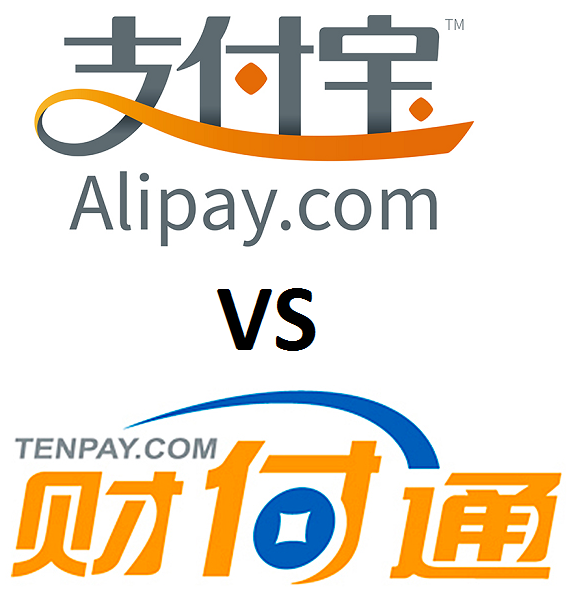Before Alibaba launched Alipay in 2004, I can assure you that it was very difficult for Chinese consumers to pay online. For example, in 2004 only 1% of Chinese had credit cards. Also Chinese banks had not developed any system to facilitate online transactions and eCommerce was still in its infancy in the country. It was in that specific moment, when Alibaba noticed international Paypal success and decided to create Alipay, its own third-party online payment platform. And with the arrival of Alipay, the future of eCommerce industry in China changed forever.
From the very beginning Alipay was a great success, the platform was mainly inspired by Paypal online payment solutions functions, but introduced some modifications to make it friendlier to Chinese consumers, who are much more cautious when they buy online than Western consumers. It was in that moment when the other China’s Internet big players, anticipating the online payments market great potential, decided to create their own third party solutions. For example, Baidu, which owns the largest search engine in China and in Chinese language, created BaiPay. Tencent, owner of China’s major social networks like Weibo, created Tenpay and even old guard financial institutions as China UnionPay also tried to create their own online payment solutions.
Ten years later, what is the situation of the eCommerce in the Chinese market and the online transactions in China? In recent years China has become a leading market for online eCommerce and those who have lived close to this great boom can affirm that online payment systems have been a key factor in its development. Currently, Alipay still controls almost half of online payment market, Tenpay about 20% and UnionPay, just over 10%, but these Internet giants struggle for the online transaction market control. Besides these three big companies also exist some smaller competitors who have developed payment solutions for very specific niche markets such as hotels reservations or buying tickets online and, in a way, they also take away part of the business.
Nowadays, all economical predictions suggest that the future of online transactions is still more than promising in the Asian country. And the two main Chinese online payment platforms Alipay and Tenpay have launched a race to gain control and gain market share. Both companies spend considerable resources in innovation and are constantly improving and developing new products to catch new consumers. In fact, they are developing such innovative financial solutions that are beginning to compete with traditional banks, and all who live in China already use these platforms to store money, schedule investments, pay bills, pay water and electricity, transfer funds to friends or check bank accounts.
For the time being, if we look at the official figures it seems that Alipay, which controls half of the online payments, has a comfortable lead over its competitors, but those who work on the Chinese online sector realize that the solutions developed by Tenpay are changing younger generations’ payment habits and therefore, the future of the sector.
If Alipay strength comes from the hegemony of Alibaba Group, which control 8 out of 10 online orders taking place in China, its main competitor Tenpay is growing fast on the market thanks to the leading social networks that controls the Tencent group: Weibo and WeChat (the Chinese Whatsapp). While Alibaba group portals cover all possible variants of online commerce, Tencent group controls entertainment and messaging channels, for which the company constantly create new payment solutions. In addition, Tencent also dominates the mobile payments sector thanks to WeChat application and the transactions made by small businesses, which in my opinion represents a major threat to Alipay.
Moreover, in a country where at the beginning, traditional financial institutions were not interested on eCommerce, Alipay and Tenpay have had total freedom to develop payment solutions and increasingly innovative online transactions tools. For example, TenPay offers financing to thousands of small businesses and has established agreements with Chinese major banks to enable them to directly serve their customers from WeChat. Although the real prize will come when online payments market will be fully mature and the large Chinese middle class will use these platforms to access all kinds of financial services, from creating simple bank accounts, grant credits or contract insurance.
Sooner than later we will see how these platforms become the largest banks worldwide, something unimaginable in the western countries, where traditional banks dominate the online transactions market.

